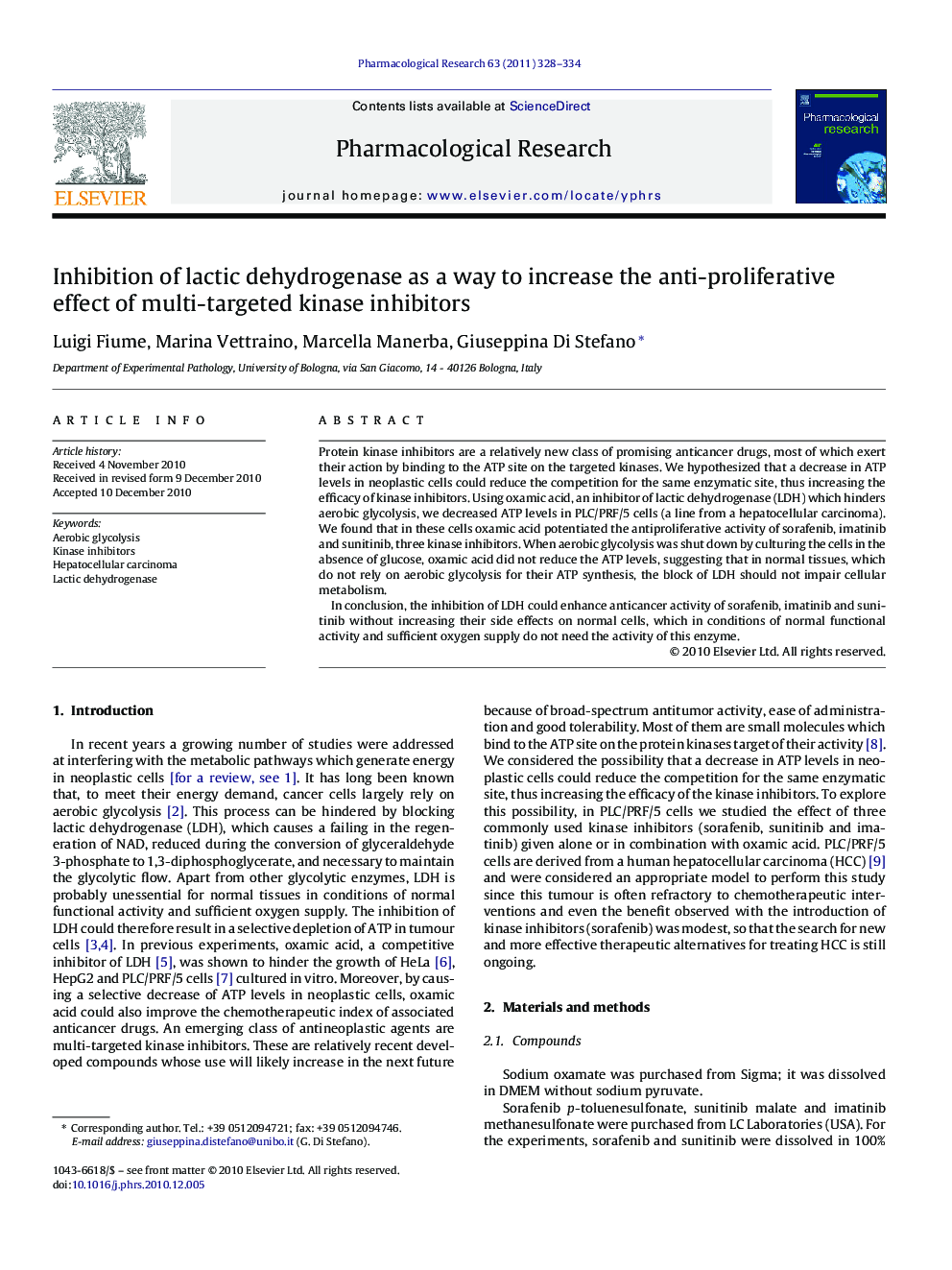| Article ID | Journal | Published Year | Pages | File Type |
|---|---|---|---|---|
| 2562169 | Pharmacological Research | 2011 | 7 Pages |
Protein kinase inhibitors are a relatively new class of promising anticancer drugs, most of which exert their action by binding to the ATP site on the targeted kinases. We hypothesized that a decrease in ATP levels in neoplastic cells could reduce the competition for the same enzymatic site, thus increasing the efficacy of kinase inhibitors. Using oxamic acid, an inhibitor of lactic dehydrogenase (LDH) which hinders aerobic glycolysis, we decreased ATP levels in PLC/PRF/5 cells (a line from a hepatocellular carcinoma). We found that in these cells oxamic acid potentiated the antiproliferative activity of sorafenib, imatinib and sunitinib, three kinase inhibitors. When aerobic glycolysis was shut down by culturing the cells in the absence of glucose, oxamic acid did not reduce the ATP levels, suggesting that in normal tissues, which do not rely on aerobic glycolysis for their ATP synthesis, the block of LDH should not impair cellular metabolism.In conclusion, the inhibition of LDH could enhance anticancer activity of sorafenib, imatinib and sunitinib without increasing their side effects on normal cells, which in conditions of normal functional activity and sufficient oxygen supply do not need the activity of this enzyme.
Graphical abstractReduction of ATP levels by oxamic acid potentiates the effect of sorafenib on human hepatocellular carcinoma cells causing an early manifestation of cell death.Figure optionsDownload full-size imageDownload as PowerPoint slide
